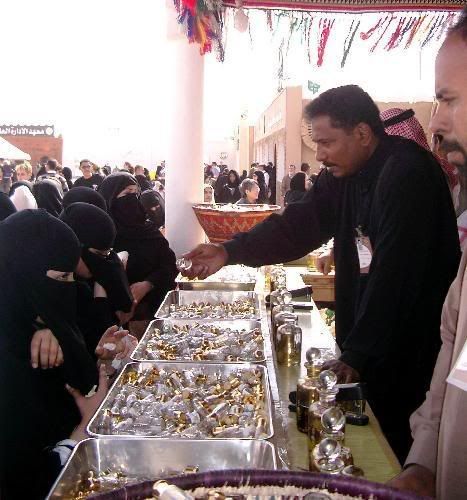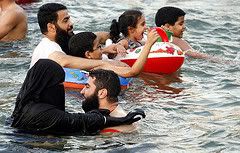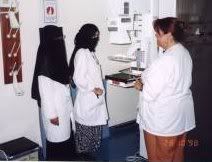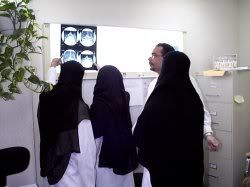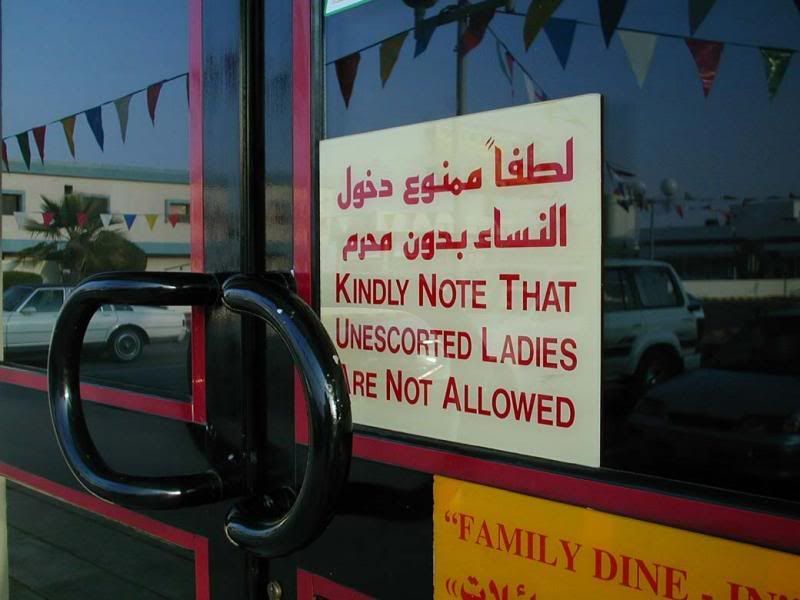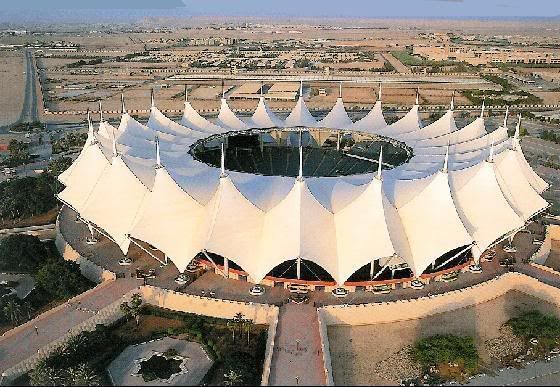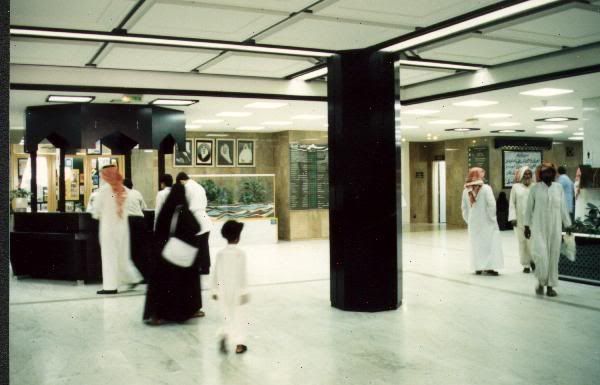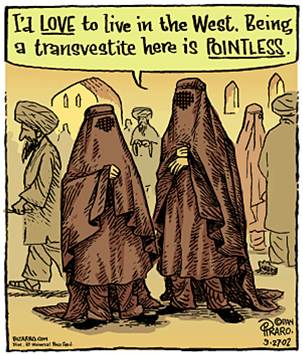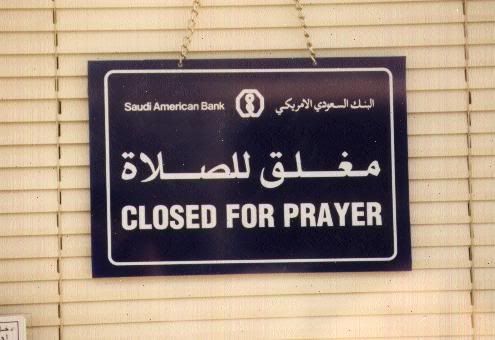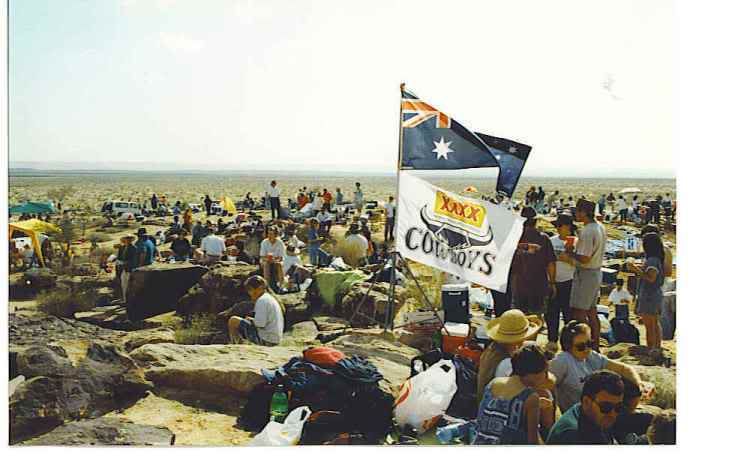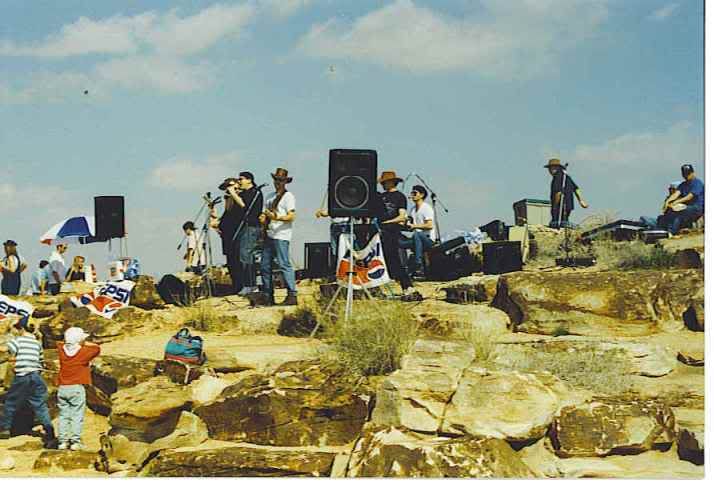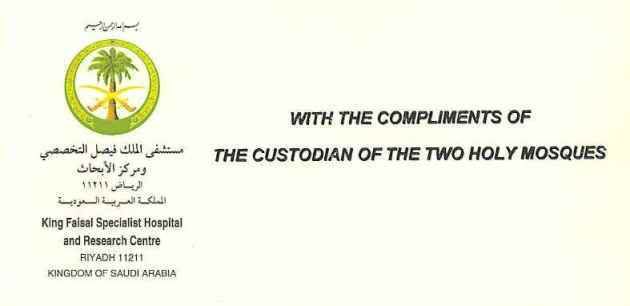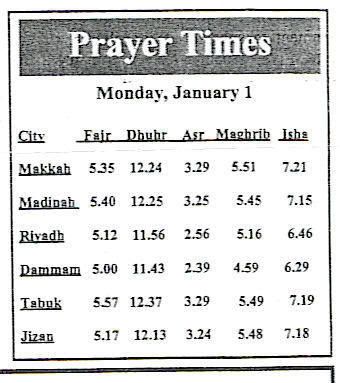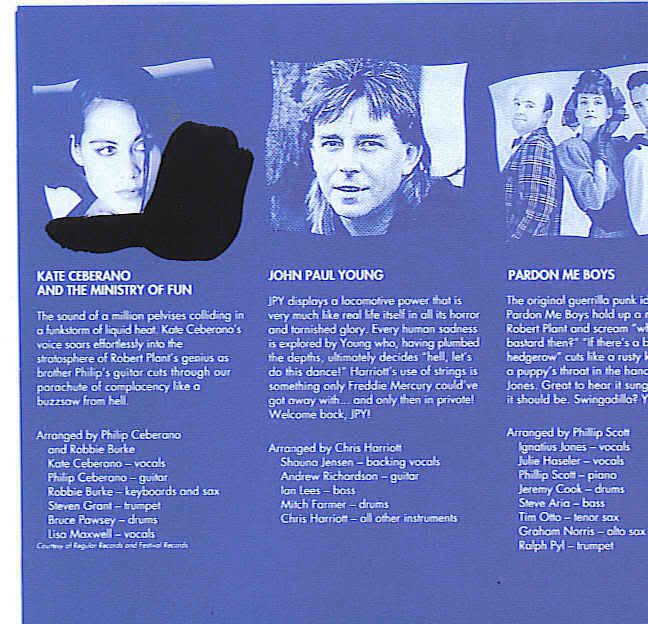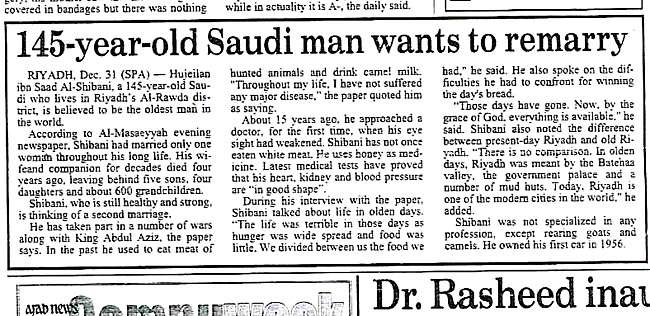aneeshm
Deity
An extremely interesting, if depressing account of the treatment of women in Saudi Arabia. It's authored by an Australian doctor and his wife (also a doctor) who spent five years in the country. It's a chronicle of what they have observed.
Link
I'd request people who want to comment in this thread to first read through the link. It's illuminating.
(NOTE: For stylistic reasons (italicisation), I've removed the attribution within the quote tag. The entire article was posted by a user going by the name of "Durro".)
(Continued after other posts.)
Link
I'd request people who want to comment in this thread to first read through the link. It's illuminating.
(NOTE: For stylistic reasons (italicisation), I've removed the attribution within the quote tag. The entire article was posted by a user going by the name of "Durro".)
After mentioning on another thread recently that I had spent several years in Saudi Arabia, I have been requested by a few people to share some stories about life there, with particular reference to how women are treated in a strict, fundamentalist Islamic society. My wife and I are Australians (hence some of the funny spelling to you Americans and Canadians). We are healthcare workers who lived and worked in Riyadh, Saudi Arabia from June 1993 to December 1998. I am a Radiographer and my wife Leanne is a Nurse and Midwife who spent 4.5 years in the Neonatal Intensive Care Unit and 1 year in the IVF clinic. We got to see firsthand what life is like under an oppressive Islamic regime. Now, where to start ?
My wife Leanne dressed for going out in public in Riyadh
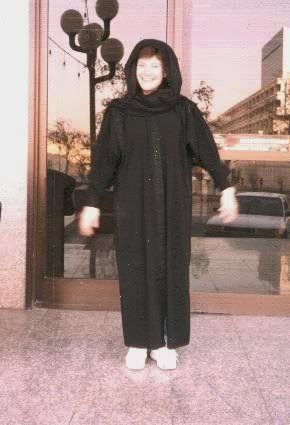
As an overview, Saudi Arabia is a very strict Islamic society. Think Taliban ruled Afghanistan or Ayatollah controlled Iran as a comparison. The King of Saudi Arabia (nice enough guy, we got on well together when I x-rayed him) is the absolute ruler of the Kingdom. His word is literally law and there is almost no democracy as we know it, save for a King appointed "consultative council" of cronies who tow the line. In 2004, Saudi Arabia also introduced voting for local councillors in municipal elections but there is no voting for national leadership. Dissention is vigorously pursued and punished, often resulting in imprisonment without trial. For a reference on this, see the Amnesty International Website at http://www.amnesty.org/ailib/intcam/saudi/
The media is tightly controlled and TV is limited and censored (except satellite TV, the saving grace of expatriates). For example, on Saudi TV, the Flintstones cartoon is censored. Fred comes home, yells "Wilma, I'm home", they go to kiss each other and CHOP ! It cuts to another scene in the cartoon, often resulting in disjointed story lines. The Saudi news (there is a Saudi produced English speaking channel) is a propaganda vehicle for the government and shows either Islamic religious programs, children's shows, soccer matches or selective "news" that is mostly shots of the royal family doing their thing whilst classical music plays over top (no royal dialogue is aired).
There are police checkpoints on major roads and highways, and you have to carry your internal passport (Iqama) with you at all times. To travel outside your city of employment and residence, you need a written permission form from your employer. You do not retain your passport when you arrive - your employer is legally obliged to hold it - but you are issued an internal ID - the Iqama. There is arrest without trial, and the laws of the land are both harsh and skewed in favour of Saudis and Saudi Men in general. There is capital punishment for murder, rape, drug trafficking, apostasy, homosexuality and blasphemy in the form of beheadings for men and stonings for women. However, I have been told that stonings have been modernised, and rather than cast individual stones at the women, the condemned is buried halfway in the ground inside a white sack and a dump truck full of rocks is backed up and tipped up over them. That's progress for you I suppose.
There is arrest without trial for some political prisoners and there are a number of lesser" offences where the punishment is flogging or hand chopping. There is no upper limit to the number of lashes that can be dished out, and generally they are delivered in lots of around 20 to 50 - the amount most people can stand before passing out. You are not allowed to photograph public buildings and photographing in general is frowned upon. I only have a limited number of photos to share with you as we took relatively few during our time there.
The country is strictly Islamic and don't think about conducting Christian religious ceremonies - a Christian preacher" who proselytized in public was beheaded there when we were there. Taxi drivers are sometimes paid to be informers about Christian ceremonies. We know of one guy - the husband of one of my wife's Filipino nursing colleagues - who was jailed for 2 years without trial for running a Christian "church" group in his own private house with several friends. A taxi driver informed on them when some passengers talked about where they were headed to each other. He was eventually deported, after being whipped (formal punishment), beaten and raped (the joys of Saudi jails) repeatedly during his jail time.
Under Saudi law, it takes 3 women to exceed the testimony of 1 man. So if a man commits a crime and two women testify against him, he will get off if he denies it. Women are viewed as hormonal and emotionally unbalanced, resulting in them being unreliable as witnesses or to hold roles of responsibility in society. The legal system is also highly biased towards their own people. In a real case involving people I know, a western friend's car was hit by a Saudi's at crossroads in the backstreets of a residential neighbourhood. The westerner had right of way by our standards and the Saudi illegally went through a posted "stop" sign at the crossroads. The Saudi successfully argued in court that he had taken the same route home each day and that the Westerner had never been there in his way before. As he had always blasted through the stop sign safely in his own neighbourhood, it was the westerner's fault for changing the road conditions unexpectedly and being there in the way. The westerner had to pay the damages for both cars ! True story. It's a whole different world there.
And so, on to the topic of women in Saudi Arabia.
First, let me be clear that there are a small number of progressive, intelligent and well educated Saudi women out there. Some are doctors, teachers, business owners and one even publicly contemplated running for political office at the aforementioned municipality elections, but pulled out - she was the subject of a recent BBC documentary. These women are very much in the minority however. Progress towards equal rights is very slow, as evidenced when a movement to allow women to drive in Saudi Arabia shortly after the 1st gulf war in 1990 was suppressed by the Saudis and the women were jailed for a short time. A new push to allow women to drive occurred unsuccessfully two years ago and one is currently underway. Please see the article at http://www.msnbc.msn.com/id/20823883/ for a reference.
But the vast majority of Saudi women are suppressed, discriminated against and have very few rights. They are generally treated poorly in public or ignored. We saw thousands of times how Saudi families walk through shopping centres with the father and kids galavanting around and the veiled wife is usually several paces behind carrying the shopping without help. Women almost always walk behind the men. Under Saudi law, daughters only get 1/2 of what the sons do from their parents' wills.
Women's education is only a relatively new innovation in the Kingdom, with primary and secondary schooling not starting for women until the 70's and 80's and tertiary education at Universities didn't start until the 90's, unless Saudi women travelled to study overseas - that's very rare though. However, at universities, men and women are segregated to the extent that the men sit in the same lecture theatre that the Professor/Lecturer is presenting in, but the women are housed in a remote auditorium/lecture theatre observing the lecture via closed circuit TV to keep them separate from the men. They don't have the opportunity to interrupt and ask questions or interact with their tutors in any way except via written submission.
All facets of Saudi life are segregated, from public areas and businesses, to even the home structure. Most Saudi homes have a common entry foyer, but then divide off into mens' and womens' section, where the respective house owners are able to entertain same-gender guests without the need to veil up. Friends of ours actually got invited to a Saudi house and after being met by the (veiled) wife and husband, they were split off and spent the entire evening apart so that the women could talk unveiled to Sue and the men could talk to Richard without those pesky, emotional women interfering. Most Saudi houses have high walls around them to stop prying eyes.
Typical Saudi home
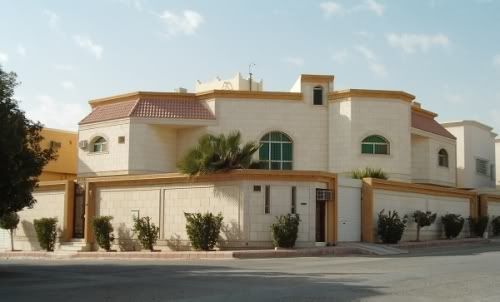
Public places are all separated and segregated. The airport has separate male and female waiting areas and the women even go through a separate security point so that they can be searched and patted down by female Saudi officers in private. Hospitals have separate male and female waiting rooms. Saudi wedding receptions are held in dual halls, where there is a common entry - or sometimes a smaller side women's entrance, and two separate halls for the men and women to celebrate the wedding. We went to a couple of weddings and everytime the female door opened, there would be a rush for women who were close to the door to bring down their veils before a man could see in. We went to a medical conference and they tried to separate male and female medical staff members by placing a large partition down the auditorium. The hospital shuttle bus that went to and from the married staff accomodation off campus tried a few times to separate my wife and I and other married couples when we were sitting together on the bus. We got a car soon after, and I occassionally ran the risk of being jailed and/or deported for giving other female married ladies a lift home to our building without my wife present (we worked different shifts sometimes).
Most businesses either have separate women's/family sections and men's sections, or just ban women from entering outright. Women are not allowed into entertainment" stores where they may be tempted into distraction away from Allah due to their unstable hormones and frivolous female thoughts. So, as a result, women are generally banned from music shops, DVD/Video shops, Computer shops (particularly those that sell games) and other recreational areas such as video game arcades. Women are also generally banned from almost every restaurant in the kingdom, unless they are accompanied by their husband or a male relative. Unaccompanied women or groups of women are routinely turned away from cafes, restaurants and fast food outlets.
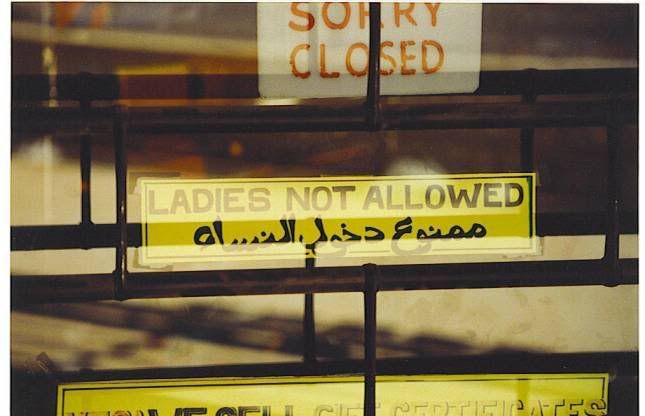
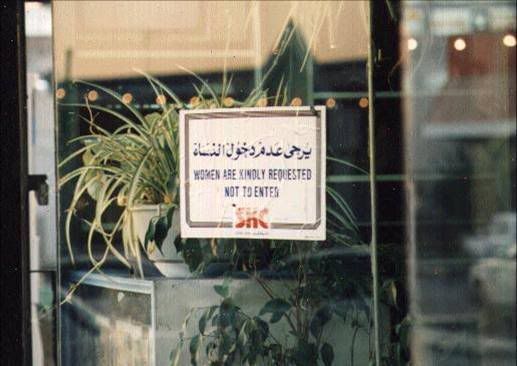
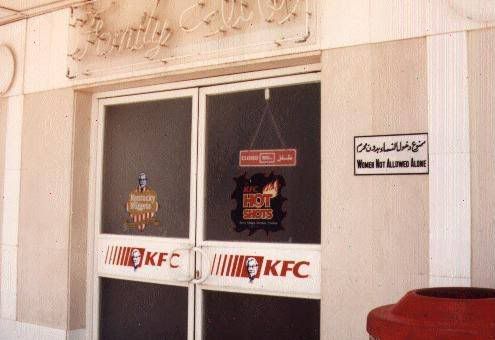
There was great excitement in Riyadh in about 1996 when the first McDonalds in the kingdom was going to open, just 200 metres away from our hospital grounds, where there were several fenced off and guarded buildings full of single female employees who lived on campus. McDonalds in Saudi is segregated just like the restaurants in the remainder of the kingdom. There is a "Singles" (i.e. "men's") section and a Family" section. The Men's section is glass fronted, has regular seating and only men can enter. NO women are allowed at all in the men's section. If my wife and I fronted up there, she would be refused entry. The family section has either solid walls or frosted windows shielding it from the outside world. Inside, the seats are cubicles which have dividing walls between them and curtains or screens that can be pulled around them for privacy (and de-veiling of Saudi women). Only couples and families can enter. Unaccompanied men can't enter and unaccompanied women can't enter either. A married couple can escort" single females into the family section, and Leanne and I got hit on a lot to take single female friends to McDonalds and the like. Women who are unaccompanied are able to go through the drive-through, but as they cannot legally drive themselves, they have to resort to hiring a taxi and go through that way to get their fast food fix.
The 1st McDonalds in Riyadh. Note the singles' (mens') and family signs

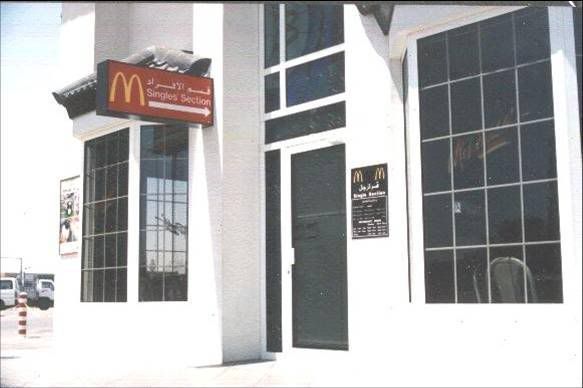

Restaurants were regularly raided by the Motowa - officially the Organisation for the Propagation of Virtue and the Prevention of Vice - the religious police whose duties included harassing women who didn't adhere to dress codes, ensuring that everything closed during prayer time, and checking to see if couples were actually married or not. Many of the known westerner hang outs and restaurants were raided regularly and dating singles were at risk of being caught, jailed and deported if they were caught together. Married couples were able to "chaperone" them though, and so Leanne and I were often asked to come on group "dates" with singles in the mix. Single (unmarried) "couples" often invested in fake marriage licences. I know of more than one pair of westerners that were caught dating and deported from the Kingdom within 48 hours. One close single couple of ours spent a lot of time "house sitting" apartments for married couples on holidays - as we each got about 8 weeks holiday, there were ample opportunities for the singles to take over married couples' accommodations and enjoy the perks and freedoms that went with it. Single female employees of our hospital were housed in guarded, female-only apartment buildings on campus and had an 11pm curfew.
Banks too have male and female branches side by side. Glass and openness for the men contrasted by the featureless blocking walls and tinted/frosted windows for the women. There are some newer shops that have "women only" shopping and I believe that the new Kingdom shopping centre in Riyadh has a couple of entire building floors which are designated as female only. Before we left, there were no women only shops, and as a consequence, women could not try on clothes before purchasing. The women weren't allowed to undress in a clothes shop and of course, the ability to hide stuff under the abaya (also known as chadour or burka) and the shopkeepers inability to search the female clients was a security risk and meant that females could not try on clothes. Women either estimated their sizes or just ordered clothes through mail order (but Victorias Secret catalogues and the like wouldn't make it through customs as they were considered pornographic and were confiscated).
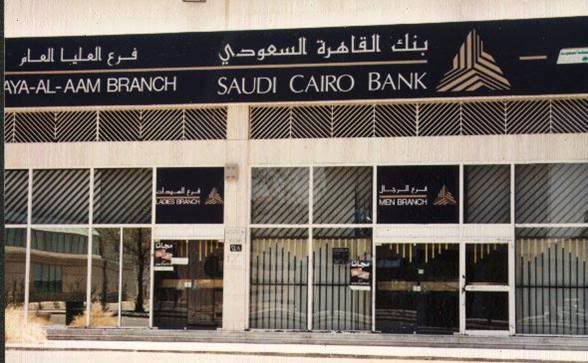
Mosques are segregated. A male Saudi once explained it this way - how could you pray to Allah and keep pure thoughts with a female's butt in front of your face when you prostrate yourself towards Mecca ? I can kind of see the point there and so, women are up the back in a (generally) curtained off area. Of course, women are not allowed to enter a mosque or even handle a Koran when they are menstruating as they are deemed to be " unclean" . Men also have to be clean before praying, hence their ablutions before salah (prayer time). Touching a woman, dirtying the body, urinating or farting invalidates the cleansing process and they have to do it again before prayer. So a woman's touch, whether they're menstruating or not, is considered as clean as a fart or peeing yourself. I once witnessed dozens of Saudi male medical staff on their way to prayer in our hospital hugging the walls and doing dances around a group of female nurses walking down the hallway and the disgust when one of them was touched on the shoulder by one nurse who wanted his attention for a medical matter. He had to go back and clean again as he was "unclean" from the woman's touch. Our expat female staff members were coached not to touch Saudi men, especially around prayer time. Woman dodging was a popular sport at prayer time and the negative body language and often avoidance by men were comical to watch.
Most marriages seem to be arranged by the family. For tribal and traditional reasons, there are a lot of familial marriages - cousins marrying each other, uncles to nieces, etc, etc over successive generations again and again. The official term is "co-sanguineous marriage" and it leads to a bit of algae in the gene pool, as we used to politely put it. It was not unusual to see an entire family limping down the hospital hallway as they all had hip dysplasia. My wife looked after one of the "metabolic babies" from a highly repetitive co-sanguineous marriage in the NICU, and a muscle biopsy came back as "unidentified tissue", it was that freaky. The baby died less than 24 hours after birth. There are a lot of congenital problems in Saudi Arabia from repetitive inbreeding over successive generations.
The age of marriage for a woman is a contentious issue. In Saudi Arabia, they are basically considered to be "women" rather than a girl at the onset of puberty. After they start menstruating, they veil up in public and can be married off. Some exceptions do slip through the crack though. In the last year we were there, my wife worked in the IVF Clinic. There was one married couple that were referred for investigation because they were not getting pregnant. The team took the 35 or so year old man and his wife to separate location (of course - there are even separate male and female waiting rooms the hospitals) and did physicals and questioned them as to how they "did it". The latter is because some Saudi men are actively homosexual before marriage due to the strict gender segregation and revert to heterosexual behaviour afterwards, but retain some of their previous practices and use the incorrect orifice for humpty pumpty. Some also tried to use the navel, reasoning that that's where the baby seems to grow inside of. But I digress - back to our couple. The team eventually found out the reason for their inability to fall pregnant, and tried to explain it to the husband in medical terms, citing hormones, menstrual cycles and the mysteries of the female reproductive system. He just didn't get it at all, and so the staff explained that, if she wasn't pregnant by the time she was tall enough to see over the high counter at the front of the IVF department, then bring her back. It turns out that she was only 13 years old but hadn't reached puberty yet. It was kind of like roller coasters at amusement parks - your child must be this high to ride this attraction, etc.
The woman's main role in Saudi Society is to be a foetus factory. A woman that can't bear children is viewed as largely useless and is usually quickly divorced, even if it's the man's fault from low sperm count, etc. Some 50% or so of the native population is under 18 and growing rapidly, now that modern medicine is providing antenatal and postnatal care and infant mortality is declined steeply. Official literature from WAMY (World Assembly of Muslim Youth) states that although women may be suitable for a limited number of useful roles in society, their main purpose is to be a mother and women can strive for no higher honour. I once x-rayed a profoundly ******** and physically infirm Saudi lady of about 24 years of age. She was bedridden, incontinent and drooled incessantly. She had cancer and was also about 6 months pregnant ! I was informed that this was her 4th pregnancy and although she was dying of cancer, her husband was refusing to allow treatment, as the Chemotherapy would kill the unborn baby. The fate of the mother was immaterial - she was not a primary wife and had been married off to her much older cousin as a baby incubator. A real living, breathing blow up doll that the Filipino maids the family employed could clean up after he was done with her. She was in hospital for life supporting (but not treatment) measures until the baby could be c-sectioned with little risk. As the woman's main health issue before the cancer was brain damage due to birth asphyxia, unrelated to any genetic issues, she produced quite normal babies and no doubt would have continued on with her foetus forming career if the tumour hadn't stifled her progress.
Even the royal wives are keen to have babies and will go to extraordinary lengths to achieve their goals. One of the wives of a very high up Prince - I can't name him for patient confidentiality reasons - was eager to get pregnant, as the Prince hadn't sired a baby in several years and getting pregnant would cement her place as the new favourite wife. The wife came in after intercourse and the IVF clinic did a vaginal swab to test the sperm count of the Prince. It was very, very low, as the guy was well over 70. So, an arrangement was made for one of the Saudi IVF consultants to be "on-call" 24 hours per day so that whenever the royal couple had intercourse, the wife could speed off to the IVF clinic at any time of the night or day and get the few active royal wigglies retrieved for IVF treatment via Intracytoplasmic Sperm Injection. She was undergoing hormone treatment and had eggs harvested for potential fertilization. It was all top secret so that the Prince, who was completely unaware of his wife's activities, could be presented with a gift from Allah via his scheming wife. At the time we left, she was still not pregnant though.
As a slight diversion to the story, my own wife did a little swab on herself after a session of horizontal folk dancing and took it to look under the microscope at work. We had been trying to get pregnant and into our 3rd month, hadn't been successful yet. She was starting to get stressed and wanted some reassurance. Turns out that I could probably double the population of China in one sitting given the chance, and we duly got pregnant the next month after the stress had been removed. I am sad to say that this potential gift to the world has been made redundant surgically via "the snip" - I am like a Christmas tree, as I have decorative balls hanging off me these days.
Leanne showing off her pregnant tummy to the IVF nursing staff
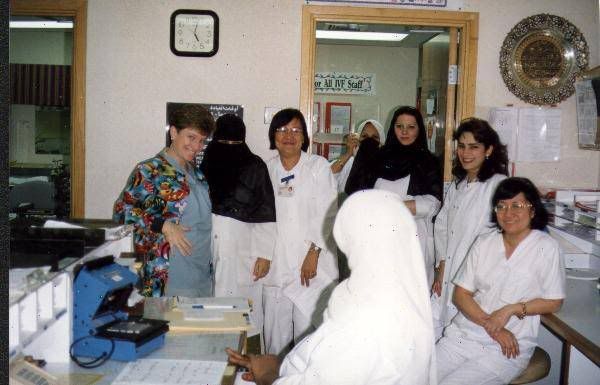
(Continued after other posts.)



